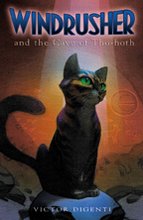 I’ll never forget the day Arthur Ashe spoke to me. Ashe was a quiet man who loomed large both in the world of tennis and as a determined fighter for the rights of others. He was also one of my heroes.
I’ll never forget the day Arthur Ashe spoke to me. Ashe was a quiet man who loomed large both in the world of tennis and as a determined fighter for the rights of others. He was also one of my heroes.In my younger days, I was an avid tennis fan, a so-so player whose game ranged from mediocre to average. I accepted the fact my athletic abilities limited me, but I kept striving to improve. Like millions of others, I watched Jimmy Connors, Bjorn Borg, John McEnroe, Ivan Lendl, and Boris Becker battle it out week after week. Arthur Ashe never quite achieved the notoriety of these players. He wasn’t volatile like Connors, or brash and explosive like McEnroe. He was a quiet winner.
Ashe had a challenging childhood, which made his achievements even more spectacular. Ashe’s mother died when he was only six, a year before he picked up a tennis racket for the first time. He demonstrated an early aptitude for the game, but living in Richmond, Virginia meant living under the confines of racial segregation, which denied him an opportunity to play in junior tournaments. With the help of his mentor, Dr. Walter Johnson, he moved to St. Louis to continue training. In his first tournament, Ashe reached the junior national championships.
That was only the beginning. Ashe captured the junior national title in both 1960 and 1961. Later he accepted a scholarship to play for UCLA, and shocked the tennis world by taking the U.S. Open title in 1968 as an amateur. All-in-all, he won 35 amateur singles titles, and in only 11 years as a pro, netted 33 singles titles, including becoming the first and only African American to win titles at Wimbledon, the U.S. Open and the Australian Open. I watched in amazement as he upset Jimmy Connors to win Wimbledon in 1975, not knowing 15 years later the quiet man himself, Arthur Ashe, would speak to me.
Sadly, a heart attack in 1979 brought an end to his competitive career, but in that short time he had accomplished more than most of us do in our lifetimes. He was one of the founders of the ATP, and served as its president, using his quiet assurance and intelligence to represent the world of tennis. While still a professional player, he protested the apartheid policies of South Africa, applying for visas to play in that country and being refused, until, in 1973, he became the first black to win a title at the South African Open.
The exciting day Arthur Ashe spoke to me occurred in 1990, a year after the Association of Tennis Professionals moved its headquarters from Dallas to Ponte Vedra Beach, Florida, only three miles from my home. I was looking forward to watching the pros play, especially when I learned Ashe would make a special appearance to present scholarships. I knew I probably wouldn’t get close enough to meet him, but being there when he walked on the court would be a thrill.
When my Rotary Club partnered with the ATP for the exhibition match, I volunteered thinking I might have a chance to see Ashe up close and maybe shake his hand. Some of the volunteers sold tickets or acted as ushers. I was a driver, working a three-hour shift driving players and officials to the airport. That’s when fate stepped in and delivered the quiet man to the rented Cadillac I was assigned to drive. One of the ATP officials accompanied him to the car and settled him in the back seat. Ashe carried a heavy brief case and looked tired. Before I took the wheel, the official pulled me aside, telling me Ashe was running a little late for his flight. He also let me know that Ashe was a private person and preferred not to be bothered on the ride to the airport.
As we motored away from the tennis courts, I introduced myself and told him not to worry that I’d get him to the airport in time to make his flight. In the rear-view mirror I saw him look up and nod. He didn’t speak to me then, instead he opened his briefcase and pulled out a stack of papers. A maelstrom of thoughts blew through my head as I drove. I was in the same car with my hero. There were so many questions I wanted to ask him: How did it feel to break the color barrier in South Africa? What was it like to beat Jimmy Connors and take the Wimbledon title? What advice would he give young players today?
I should have been concentrating on my driving, but my mind raced with strategies I might use to break the ice. There must be a way to start a conversation with this quiet man who’d been so instrumental in the game of tennis. That’s when I made the mistake of flying through an intersection instead of taking the turn to the airport.
I thought he wasn’t paying any attention, but Ashe immediately looked up from his reading. He stared back at the intersection, the directional sign signaling the turn to the airport fading in the distance. Then he caught my eye in the mirror and spoke to me.
Arthur Ashe spoke in the same quiet, confident voice I’d heard when he presented the scholarships earlier in the day. But this time he was speaking directly to me when he uttered this unforgettable line:
“Do you know where you’re going?”
I assured him I did, made a nifty U-turn and got us to the airport on time. I can’t recall if he responded when I told him it had been an honor to drive him, and wished him well. But I’ll never forget the question he directed at me that day — “Do you know where you’re going?”
It would be overly dramatic to say the words had hidden meaning. But I like to think of it as a metaphor for getting the most out of life, and I have Arthur Ashe to thank for presenting it to me.
Arthur Ashe succumbed to H.I.V. in 1993, having been infected with the AIDS virus from a blood transfusion during his second heart bypass operation. President Clinton later posthumously awarded him the Presidential Medal of Freedom, and ESPN established the Arthur Ashe Courage Award as part of its annual ESPY Awards.
We all have heroes in our lives. Individuals who quietly fight for what’s right. Individuals like Arthur Ashe demonstrate by their actions that we can rise above the challenges of our past, racial bias, even issues of health, to act courageously and with dignity. So, yes, maybe Arthur Ashe was offering me more than a comment on my driving, which is why I constantly ask myself, “Do you know where you’re going?”
In my book, Matanzas Bay, private eye Quint Mitchell is a man readers can respect. He always tries to do the right thing, and he definitely knows where he’s going. Try it, you’ll like it.









2 comments:
This was a truely wonderful and inspirtational blog. It's so great that you got to meet one of your idols...even if just for a moment.
Thanks, Evilous. I wish we'd had a meaningful conversation, but I'll never forget that day.
Post a Comment